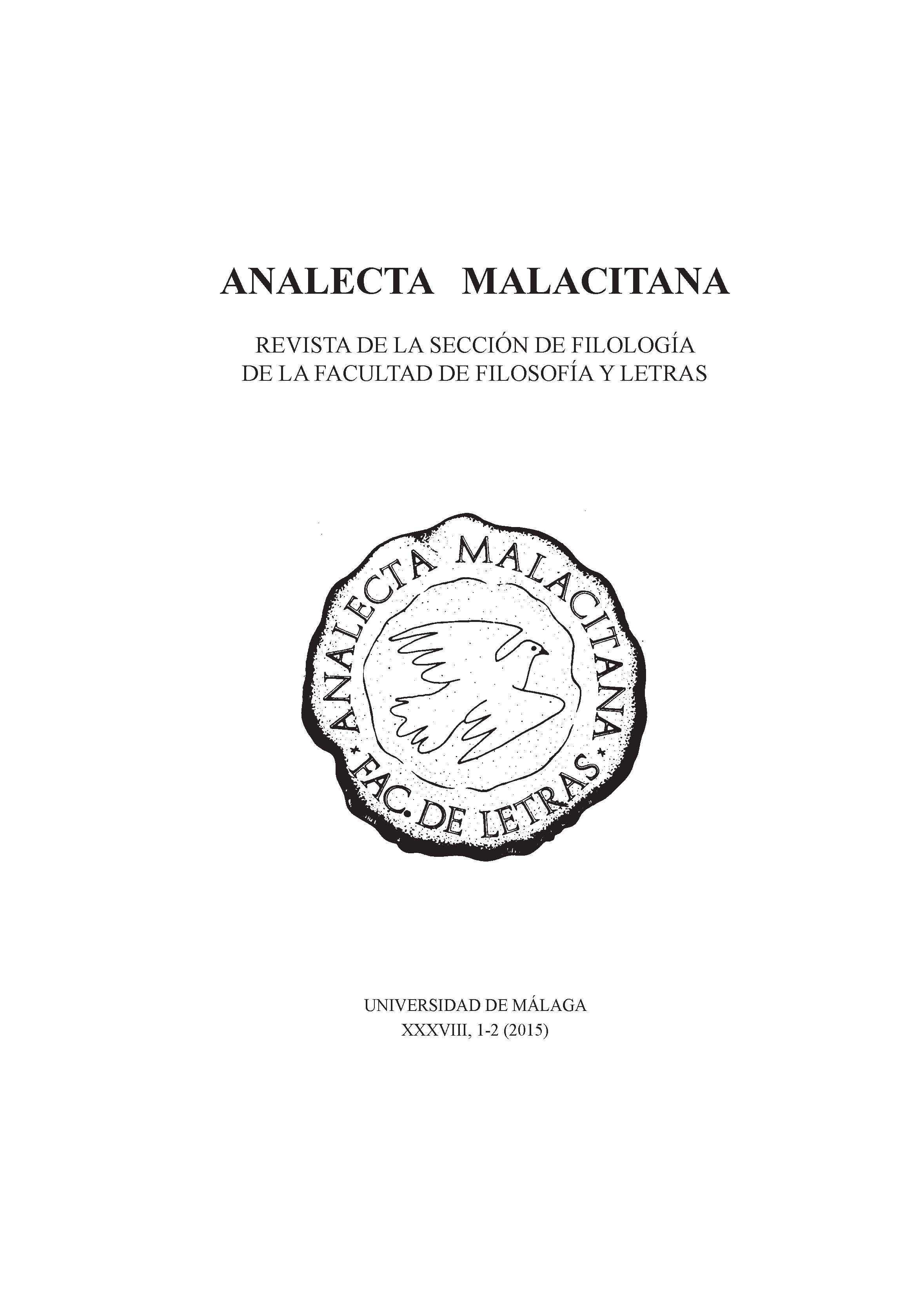Una autobiografía religiosa fuera de la norma: Autonomía y racionalidad en El libro de Recreaciones de María de San José
DOI:
https://doi.org/10.24310/analecta.v38i1.4350Abstract
RESUMEN: Las «autobiografías por mandato» fueron, durante muchos siglos, el único mol-de autorizado donde la mujer religiosa podía desarrollar sus inquietudes literarias. En este artículo, se analiza cómo María de San José (1548-1603) realiza una «autobiografía por mandato» rompiendo con el modelo de saturación emocional que suele caracterizar a este género literario. Para ello, se estudian las referencias a la oración mental en su Libro de las Recreaciones y se comparan con los de otras escritoras carmelitas.
ABSTRACT: The spiritual autobiographies were, for many centuries, the authorized model where contemplative women made real his literary ideals. This article investigate how Maria de San José (1548-1603) write a text that breaks the standard of emotional saturation that usually shows this literary genre. To accomplish this objective, references to mental prayer in her Book of Recreations are analyzed and compared with those of other Carmelite women writers.
Downloads
Metrics
Downloads
Published
How to Cite
Issue
Section
License
In the Analecta Malacitana Journal we are clearly committed to a policy of open access to scientific knowledge (See the Berlin Declaration).
Those authors who have publications with this journal accept the following terms:
This journal provides immediate free access to its content on the principle of making research freely available to the public. All content published on Margins is subject to the Creative Commons Attribution-No Derivatives 4.0 International license.
It is the responsibility of the authors to obtain the necessary permissions of the images that are subject to copyright.
Authors whose contributions are accepted for publication in this journal will retain the non-exclusive right to use their contributions for academic, research, and educational purposes, including self-archiving or deposit in open access repositories of any kind.
The electronic edition of this magazine is edited by the Editorial of the University of Malaga (UmaEditorial), being necessary to cite the source in any partial or total reproduction.
The authors may adopt other non-exclusive license agreements for the distribution of the version of the published work (for example: deposit it in an institutional telematic archive or publish it in a monographic volume) provided that the initial publication in this magazine.
Authors are allowed and recommended to disseminate their work through the Internet (for example: in institutional telematic archives or on their web page) before and during the submission process, which can produce interesting exchanges and increase citations to the published work. (See The effect of open access.)





25.png)
